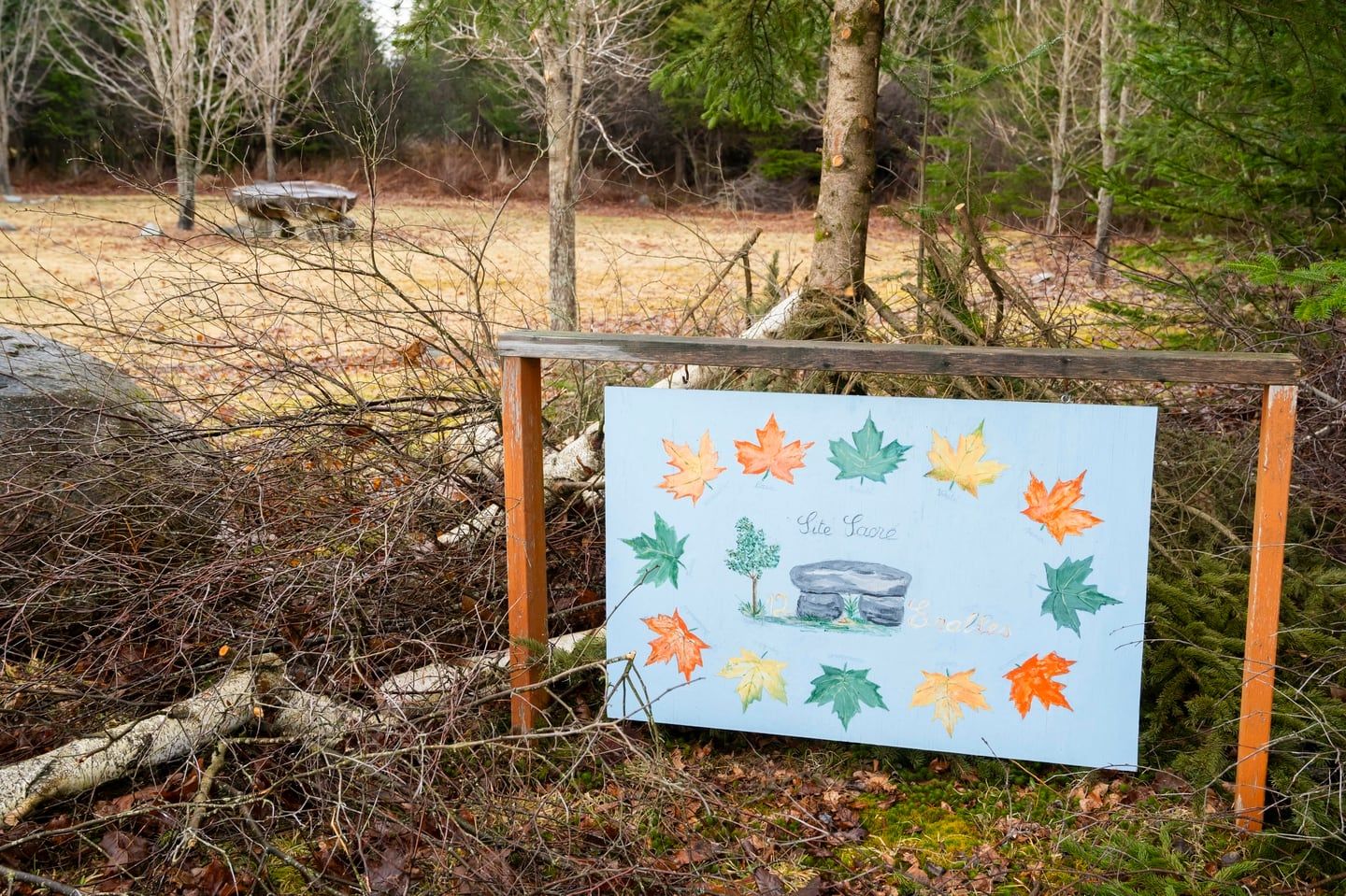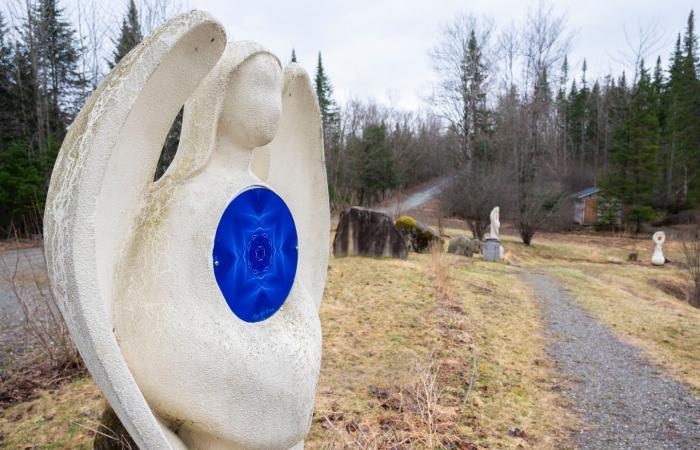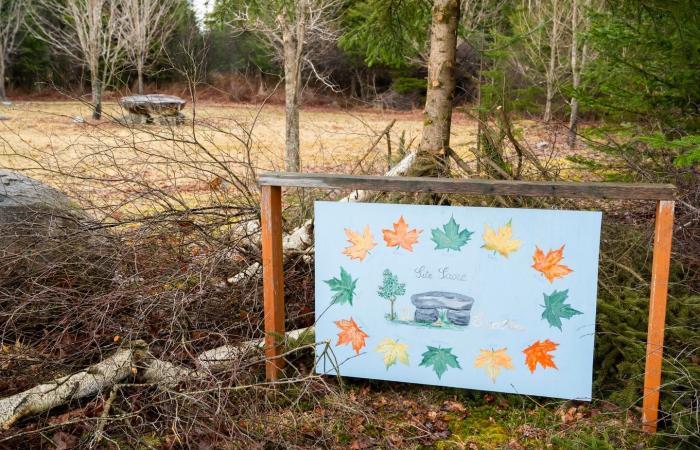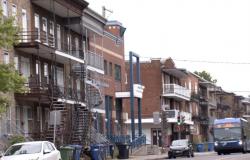Of this amount, payments totaling nearly $153,300 are already due, notes the municipality. To this is added interest accumulated by the Church of more than $3,200.
About sixty faithful reside on this estate, which is valued, according to the MRC du Haut-Saint-François, at $5,583,200.
Having interrupted at the very last minute its request to appeal the decision rendered in the context of its dispute with the municipality, the Essene Christian Church argues for its part that it “did not refuse to pay the taxes”, but that she rather hoped to start a dialogue with her and find common ground, which she was unable to obtain.
“We want to have good relations with everyone and respect the law. But we want to understand what we have to pay, pay what is right to pay and be able to live according to our beliefs,” expresses the president of the Church, Florent Cecchella.
The Christian Essene Church of Quebec has been in dispute for many years with the municipality of Cookshire-Eaton due to the use of its agricultural property for rituals, ceremonies and religious seminars: municipal zoning has only ever authorized religious activities can be held there.
Several buildings and places of worship extend over the vast agricultural land. (Jean Roy/La Tribune)
The dispute was brought to the Superior Court, before which the Church deplored not having been heard by the municipality when it had requested, without success, that the zoning by-law be modified to allow the holding of religious activities.
The Municipality maintains that when the Church acquired its vast domain on Chemin Brochu in 2007, it was more a question of a place of tourism and vacation, a purpose then integrated into the zoning by-law. An assertion that was denied by representatives of the organization that took charge of the acquisition under the name of the Essenia Foundation, arguing that the City was indeed aware of its intended uses of places of worship.
Judge Line Samoisette finally ruled, in December 2021, that there was no infringement of freedom of religion and that the Church must cease all religious activity in order to comply with the municipality’s zoning.
Decision accepted
After steps to appeal its case and extensions of deadlines, the Church finally withdrew very recently, which made the decision official.
“By dropping the appeal, it gave us reason that it was not a place of worship, and therefore a taxable place,” explains the general director of Cookshire-Eaton, Martin Tremblay.
“Initially, when they dropped the call, they seemed ready to discuss paying the taxes, but now they no longer want to pay them.”
— Martin Tremblay, general manager of Cookshire-Eaton
For his part, Florent Cecchella, rather deplores a lack of collaboration from the municipality “To show our good faith, we canceled the call. The municipality was ready to meet with us. After the judgment, the municipality no longer wanted to discuss with us.”
A tax bill of $125,176, retroactive for 2022 and 2023, was sent last September to those responsible for the Essene Village of l’Érable. While all of the payments requested for these two years will be due on June 25, no payment had yet been received at the time of writing these lines. To this is also added the tax bill for 2024 sent at the start of the year, which is $57,915.78.
The Essene Church has confirmed its intention not to pay by registered mail to the City, according to the City.
According to Mr. Cecchella, there is no question of losing the estate of more than 250 acres where around sixty Essenes live.
“We want to resolve the situation as simply as possible,” he said. This dispute has gone on for far too long. It cost both parties a lot of money.”
— Florent Cecchella, president of the Christian Essene Church and the Christian Essene Church of Quebec
Buildings without permits
Several Essenes who chose to settle in Maple Village paid the equivalent of the value of their property to the Church in exchange for the construction of their home and a “right of use” contract. with the religious corporation. This contract provides that they will be able to recover their investment if they give way to a new Essene occupant.
The Church itself also constructed certain buildings for rental purposes, in exchange for a community contribution.
However, certain buildings on the site were built without a permit, says Martin Tremblay. A situation which has also helped to reduce the total taxes to be collected, he said, since the MRC’s evaluation only takes into account buildings built with a permit.
“In addition to having been built without permits, some buildings were built in the green zone. The Commission for the Protection of Agricultural Territory of Quebec (CPTAQ) could outright ask that they be moved or demolished,” notes Mr. Tremblay.
Worship activities
The place of worship dedicated to the archangel Gabriel and the angels representing the virtues. (Maxime Picard/La Tribune)
Asked whether worship activities were still being held on site even though a judge ordered the church to cease them, Mr. Cecchella replied that “the members of the church who live in Village de l’Érable practice their religion at home or in nature.
During a visit on March 15, The gallery was able to see that a religious seminar was taking place in a building shared by the community.
In 2016, the CPTAQ sent the Church an order ordering it to cease all non-agricultural activity on its property, with the exception of a few specific areas, and to destroy or move all buildings that were not covered by an exception. It was also demanded that all installations and buildings dedicated to worship be dismantled, in particular the monument in honor of the Archangel Gabriel and the statues around it. This one is still there.

The oldest place of worship in Maple Village, where 12 maples were planted in a circle. (Maxime Picard/La Tribune)
Contested by the religious corporation, this order was confirmed in 2018 by a judge of the Administrative Tribunal of Quebec. The Church was then refused permission to appeal to the Court of Quebec.
Martin Tremblay specifies that a visit from the CPTAQ was made at the beginning of the year. If its report concludes that the premises were used for purposes of worship, municipal fines could be imposed on the Church.
The CPTAQ confirms for its part that an investigation is still underway, but that it cannot reveal the details at this time.








